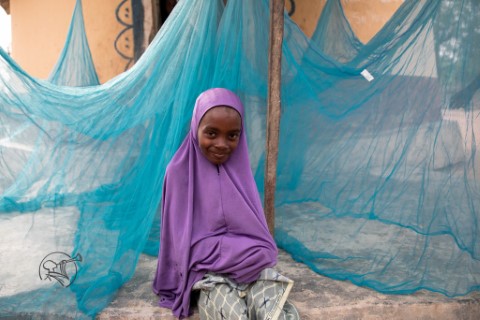“Time to Deliver Zero Malaria: Invest, Innovate, Implement”, and the call to action is “Act Now”.
It is no more news that malaria is a significant public health disease globally with notable endemicity in Sub-Saharan Africa including our dear country, Nigeria. Research shows that malaria accounted for 247 million clinical episodes and 619,000 deaths globally in 2021. Of these deaths, 80% were said to occur in children under 5 years of age.
Sad still, the World Health Organization (WHO) reports that Nigeria accounts for 27% of malaria cases and 31% of malaria deaths. Based on these indices, it is obvious that malaria is a life-threatening disease, especially in high-risk groups such as children (under 5)and pregnant women. However, the good news is that malaria is preventable and treatable.
To do this, the Federal Ministry of Health (FMOH), National Malaria Elimination Programme (NMEP), and implementing partners joined forces this year to put malaria on the front burner during the 2023 World Malaria Day commemoration with the theme, “Time to Deliver Zero Malaria: Invest, Innovate, Implement”, and the call to action is “Act Now”.
During the commemoration, Breakthrough ACTION-Nigeria (BA-N) and Centre for Communication and Social Impact (CCSI), one of the implementing partners on the project were part of the key players who provided technical support for the awareness campaign including the Road Walk/Ministerial Press Briefing and the Community Outreach/Sensitization at Gidan Mangoro Primary Health Centre (PHC), Orozo in the Federal Capital Territory (FCT).
BA-N is the United States Agency for International Development (USAID)’s flagship Social and Behavior Change (SBC) project under the prime implementation of Johns Hopkins University Center for Communication Programs (JHU CCP), Baltimore. The project aims to promote the adoption of priority behaviours in Malaria, as well as in Tuberculosis, Family Planning, and Maternal, Newborn, and Child Health + Nutrition.
The intermediate results of the project are to improve individual and social determinants of health, strengthen SBC across United State Government (USG) investments, and strengthen public sector systems for oversight and coordination of SBC at the national and sub-national levels. The project partners with federal and state Ministry of Health programs, departments, agencies, and USAID implementing partners to coordinate the demand, supply, and quality of services.
The project implements the Malaria Social and Behavior Change interventions in Akwa Ibom, Benue, Cross River, Nasarawa, Oyo, Plateau, and Zamfara. With the exception of Cross River and Plateau States, CCSI provides technical and programmatic support for the implementation in the States. Working with the Government of Nigeria and USAID implementing partners, CCSI supports community malaria SBC, mass media, and mobile/digital SBC interventions, and other evidence-based innovative approaches.
Beyond the efforts of implementing partners in the fight against this killer disease, the campaign encourages citizens to act by taking action to end malaria. These actions include becoming a champion by encouraging others to adopt preventive and control measures against the disease today. Practice and encourage family and friends to:
- Sleep inside Insecticide-Treated Net (ITN) every night all year round
- Seek prompt care for fever.
- Demand a test for fever before treatment.
- Adhere to completing the malaria medicine called Artemisinin-based Combination Therapy (ACT)
- Take Intermittent Preventive Treatment in pregnancy (IPTp) – for pregnant women.
It is thus imperative for Governments at all levels to make funding a priority. To this end, the areas to create big wins would include ensuring that counterpart funding for ITN and Seasonal Malaria Chemoprevention (SMC) campaigns are promptly paid, procurement of preventive commodities (Sulphadoxine-Pyrimethamine) especially for pregnant women, are constantly put on front burners.
Act Now!
_____________________________________________________________________________________
About Us
The Centre for Communication and Social Impact (CCSI) is a leading Social and Behaviour Change (SBC) organization with expertise in utilizing evidence from research to implement effective strategies that address barriers preventing designated audiences from adopting recommended behaviours.
Birthed by the Johns Hopkins Center for Communication Programs (JHCCP), Baltimore, USA, and registered in 2001 as a Non-Governmental Organization with the Corporate Affairs Commission of Nigeria, CCSI continues to work towards being the centre of excellence in strategic communications in Africa.
Driven by values of integrity, passion, care, innovation, and excellence, CCSI focuses on the central role of strategic communication to impact behaviours, build brands, and provide technical leadership in health and social development.
